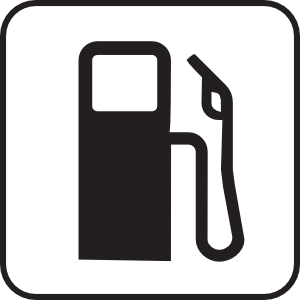
The Ghana Chamber of Bulk Oil
Distributors (CBOD) has described the increment in the prices of
petroleum products as a “bold but not adequate step”.
According to the Chief Executive of the chamber, Mr Senyo Hosi, the
23.08 per cent hike in the price of petrol (premium), 22.01 per cent
increase in that of diesel and accompanying upward increases for other
petroleum products were below the expectation of the BDCs’ 43 per cent
price hike.
“The government is still exposed to additional
subsidy. It is exposed to the forex subsidy due to the depreciation of
the cedi which would have only been insulated by a 43 per cent
increase,” Mr Hosi pointed out in an interview with the Daily Graphic yesterday.
He was reacting to the announced price hike in the prices of petroleum products which took effect from yesterday.
“As
a result, government, in effect, is still shielding part of the cost
for the consumer, which in the long run will accrue more debt,” he
noted.
Mr Hosi was of the view that until the government boldly did away with subsidies, there would still be problems in the industry.
Very bold decision
According to him, the BDCs welcomed the government’s decision to increase the prices of petroleum products.
“The
decision is very bold and a necessary step by the government and must
be lauded as a critical step towards re-establishing funding confidence
in the industry,” Mr Hosi said.
He stated that the government
would have incurred an additional debt of GH¢95 million, being subsidies
on two weeks’ consumption of petroleum products, if it had not
increased the prices of petroleum products this week.
“Nonetheless,
it must be noted the government is still exposed to additional subsidy
and its accompanying future debts,” he noted.
LCs Issue
Seven
out of 10 banks which pre-finance the BDCs to lift petroleum products
have pulled out due to the BDCs’ indebtedness to them.
Asked if
the banks had rescinded their decision after the increment, Mr Hosi
said, “We are still engaging the banks to recognise this step from
government as a confidence booster.”
Social Interventions
Calling
for a public discourse on the need for the total removal of subsidies
to guarantee uninterrupted supply of petroleum products, Mr Hosi said,
“The discourse should be more on social interventions in mass
transportation to help ameliorate the impact of the increment vis a vis
the need to boost productivity through transportation.”
“When you move more people effectively and efficiently from point A to point B, it yields productivity,” he said.
Aside
that, he said consumption of petroleum products would be minimised and
thereby reduce the impact on forex requirement for import.
Meanwhile, the fuel price hike has resulted in a 15 per cent increase in transport fares across the country.
The increment in fares has been met with hostility from passengers who are already complaining of high cost of living.
Government debt
The
BDCs have, since the ending of June 2014, been faced with operational
challenges due to the refusal of banks to issue letters of credit (LCs)
to enable them to import finished petroleum products.
The
government currently owes the BDCs more than GH¢1.3 billion, being
subsidies on petroleum products from June 2011 to December 2013, while
the BDCs owe the banks an equal amount of debt.
A private audit
firm, Ernst and Young, has been contracted by the government to audit
the debt. The report is expected to be out in less than a month.
The government has indicated its readiness to settle the rest of its debts after the completion of the audit.
No comments:
Post a Comment